Shelties are often mistaken for miniature Collies, but in fact, they are a distinct breed known as the Shetland Sheepdog or Sheltie. The Shetland Sheepdog originated in the Shetland Islands of Scotland, where they were used to herd sheep and other livestock. Today, they are popular family pets known for their intelligence, loyalty, and affectionate nature. Is a Sheltie a Shetland Sheepdog?
Despite their name, Shetland Sheepdogs are not sheepdogs in the traditional sense. They were originally bred to herd and protect sheep, but their small size and agility made them better suited for herding smaller animals like poultry and rabbits. Over time, they became popular as companion dogs and were bred for their friendly and gentle temperament. Today, Shelties are beloved by families all over the world for their playful and affectionate personalities.
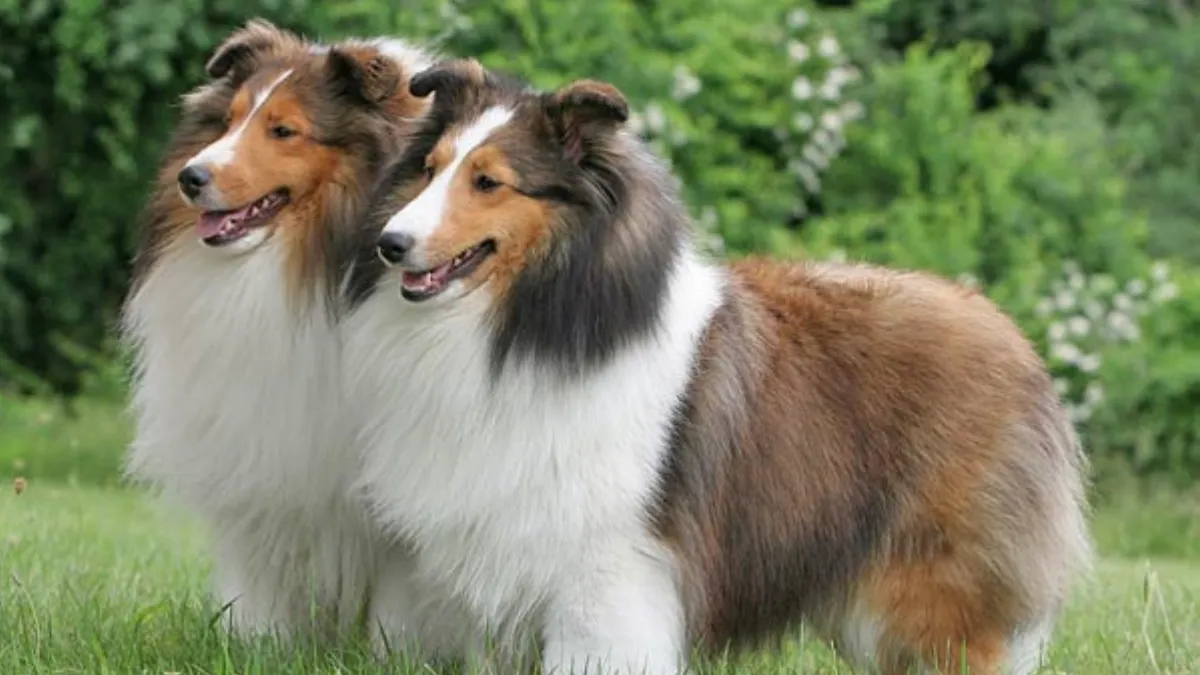
Breed Overview
History and Origin
The Shetland Sheepdog, commonly referred to as Sheltie, is a breed of dog that originated in the Shetland Islands of Scotland. The breed was developed in the early 1800s by crossing the local herding dogs with other breeds, including the Rough Collie, Border Collie, and Scottish Collie. The Shetland Sheepdog was initially known as the Shetland Collie, but its name was changed to Shetland Sheepdog to avoid confusion with the Rough Collie.
Breed Characteristics
The Sheltie is a highly intelligent and energetic breed that is known for its herding instincts. They are small to medium-sized dogs, weighing between 14 and 27 pounds and standing between 13 and 16 inches tall at the shoulder. They have a lifespan of 12 to 14 years and are known for their loyal and affectionate temperament.
Physical Appearance
The Sheltie has a double coat, consisting of a thick undercoat and a longer outer coat. The coat comes in a variety of colors, including sable, tricolor, blue merle, black, and white. The breed is known for its distinctive "mane" of fur around its neck and chest. They have a wedge-shaped head, almond-shaped eyes, and prick ears.
Color Variations
The Sheltie's coat colors include sable, tricolor, blue merle, black, and white. Sable is the most common color and ranges from golden to mahogany. Tricolor Shelties have a base of black with tan and white markings. Blue Merle Shelties have a base of gray with black spots. Black and white Shelties have a base of black with white markings. Tri-color Shelties have a base of black with tan and white markings.
In conclusion, the Shetland Sheepdog, or Sheltie, is a highly intelligent and energetic breed that is known for its herding instincts. They have a distinctive double coat and come in a variety of colors, including sable, tricolor, blue merle, black, and white. The breed has a loyal and affectionate temperament and makes a great companion for those who enjoy an active lifestyle.

Health and Care
Common Health Issues
Shelties, or Shetland Sheepdogs, are generally healthy dogs. However, like all breeds, they are prone to certain health issues. Some of the most common health problems in shelties include hip dysplasia, thyroid problems, blindness, cataracts, and von Willebrand disease.
Hip dysplasia is a condition where the hip joint does not develop properly. This can lead to arthritis and pain in the hips. Thyroid problems can cause weight gain, lethargy, and skin problems. Blindness and cataracts can occur in older dogs, and von Willebrand disease is a bleeding disorder that can cause excessive bleeding after injury or surgery.
To prevent these health issues, it is important to maintain regular checkups with a veterinarian. Early detection and treatment can help prevent serious health problems from developing.
Grooming Needs
Shelties have a thick double coat that requires regular grooming. The outer coat is long and silky, while the undercoat is soft and dense. They shed heavily twice a year and require daily brushing during these times to prevent matting.
To keep their coat healthy and shiny, shelties should be brushed at least once a week. They also need to be bathed occasionally, but not too often as it can dry out their skin. Regular grooming can also help prevent skin problems and reduce shedding.
Diet and Nutrition
Shelters require a balanced diet to maintain their health and energy levels. They should be fed high-quality dog food that is appropriate for their age, size, and activity level. It is important to avoid overfeeding, as shelties can easily become overweight.
In addition to their regular meals, shelties enjoy treats and snacks. However, treats should be given in moderation and should not make up a significant portion of their diet.
Exercise Requirements
Shelties are active dogs that require daily exercise to stay healthy and happy. They have a moderate energy level and enjoy a variety of activities, including walks, runs, and playtime in a fenced yard.
It is important to provide shelties with enough exercise to prevent boredom and destructive behavior. However, they should not be over-exercised, especially in hot weather, as they are prone to heat exhaustion.
Overall, shelties are a delightful breed that makes great companions. With proper care and attention, they can live long, healthy lives.
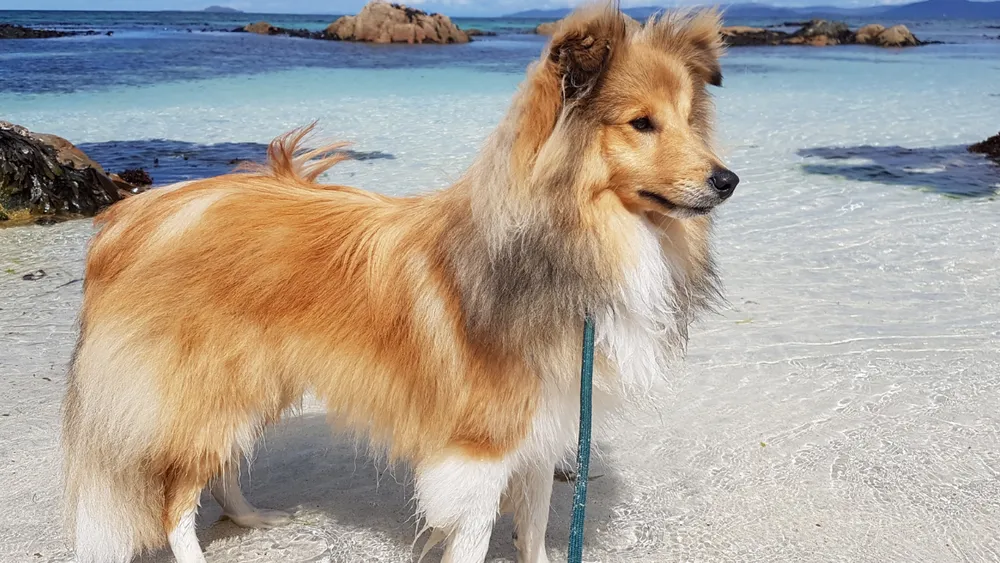
Training and Behavior
Temperament
Shelties are known for their intelligence, sensitivity, and affectionate nature. They are playful, energetic, and love to be around people. However, they can be shy and reserved around strangers, so early socialization is important. Shelters are also protective of their families and can bark excessively if not trained properly.
Training Techniques
Training a Sheltie requires patience, consistency, and positive reinforcement. They respond well to obedience training and agility exercises, as they are natural herding dogs. Shelties are intelligent and eager to please, making them easy to train with the right techniques.
Socialization
Early socialization is crucial for Shelties to become well-adjusted family pets. They should be exposed to different people, animals, and environments from a young age. Shelters are generally good with children and other pets, but proper socialization can prevent any potential issues.
Overall, shelters make great family pets with their affectionate and playful personalities. With proper training and socialization, they can excel in obedience and agility competitions.
Activities and Competitions
Shelties, also known as Shetland Sheepdogs, are highly energetic and athletic dogs that love to participate in various activities and competitions. They are intelligent and sensitive dogs that require mental stimulation along with physical exercise to stay healthy and happy.
Dog Sports and Agility
Shelties excel in dog sports such as agility, obedience, and rally. They are highly athletic and agile dogs that can navigate through obstacles with ease. Their herding background makes them excellent at following commands, and their intelligence and eagerness to please make them easy to train.
In agility competitions, Shelties are known for their speed and accuracy. They can easily navigate through tunnels, weave poles, and jumps. They are also great at obedience competitions, where they have to follow commands and perform various tasks.
Therapy and Service Work
Shelties are also great therapy dogs due to their affectionate and sensitive nature. They love to be around people and provide comfort and support to those in need. They are also used as service dogs for people with disabilities, as they are easy to train and highly intelligent.
Their playful and affectionate nature makes them great companions for children and adults alike. They are known for their loyalty and devotion to their owners, and they thrive on human interaction.
In conclusion, Shelties are highly versatile dogs that excel in various activities and competitions. They require mental stimulation along with physical exercise to stay healthy and happy. They are affectionate, sensitive, and intelligent dogs that make great companions for people of all ages.
Breed Recognition and Clubs
Kennel Club Affiliations
The Shetland Sheepdog, commonly referred to as the Sheltie, is recognized by various kennel clubs worldwide. The American Kennel Club (AKC) and the Kennel Club of England are two of the most prominent kennel clubs that recognize the Sheltie as a distinct breed.
The AKC recognizes the Shetland Sheepdog as a member of the Herding Group, while the Kennel Club of England classifies the breed under the Pastoral Group. Both kennel clubs have specific standards that the breed must meet to be registered and shown in their respective competitions.
Breed Standards
Shelties are a small to medium-sized breed, known for their intelligence, loyalty, and agility. According to the AKC breed standard, Shelties should be between 13 and 16 inches tall at the shoulder and weigh between 14 and 27 pounds. The breed standard also specifies the ideal coat length, color, and markings.
A reputable breeder should be knowledgeable about the breed standard and strive to produce puppies that meet these standards. Breeders who are members of kennel clubs are more likely to adhere to these standards and produce healthy, well-socialized puppies.

In conclusion, the Shetland Sheepdog, or Sheltie, is a recognized breed by various kennel clubs worldwide, including the AKC and the Kennel Club of England. These clubs have specific standards that the breed must meet to be registered and shown in competitions. Potential owners need to seek out reputable breeders who are knowledgeable about the breed standard to ensure that they are getting a healthy, well-bred puppy.
Adoption and Purchasing
Finding a Reputable Breeder
When looking to purchase a Sheltie, it is important to find a reputable breeder. A reputable breeder will prioritize the health and well-being of their dogs over profit. They will also be knowledgeable about the breed and able to provide you with information about the dog's lineage and health history.
To find a reputable breeder, start by researching breeders in your area. Look for breeders who are members of the American Shetland Sheepdog Association or similar organizations. These breeders will adhere to strict breeding standards and will be more likely to provide you with a healthy, well-bred puppy.
When you visit a breeder, be sure to ask questions about the puppies and their parents. A reputable breeder will be happy to answer your questions and provide you with any necessary information. They will also allow you to meet the puppies and their parents in person.
Rescue and Adoption
If you are interested in adopting a Sheltie, there are many options available to you. Animal shelters and rescue organizations often have Shelties available for adoption. These dogs may be older or have special needs, but they can still make wonderful family pets.
When adopting a Sheltie, it is important to be patient and understanding. These dogs may have had difficult pasts and may require extra care and attention. However, with love and patience, they can make loyal and loving companions.
Adopting a Sheltie can also be a more affordable option than purchasing a puppy from a breeder. Adoption fees are often much lower than the cost of purchasing a puppy, and many shelters and rescue organizations provide basic veterinary care before the dog is adopted.
Overall, whether you choose to purchase a Sheltie from a reputable breeder or adopt one from a shelter or rescue organization, it is important to do your research and choose a dog that is right for you and your family. With proper care and attention, a Sheltie can make a wonderful addition to any home.
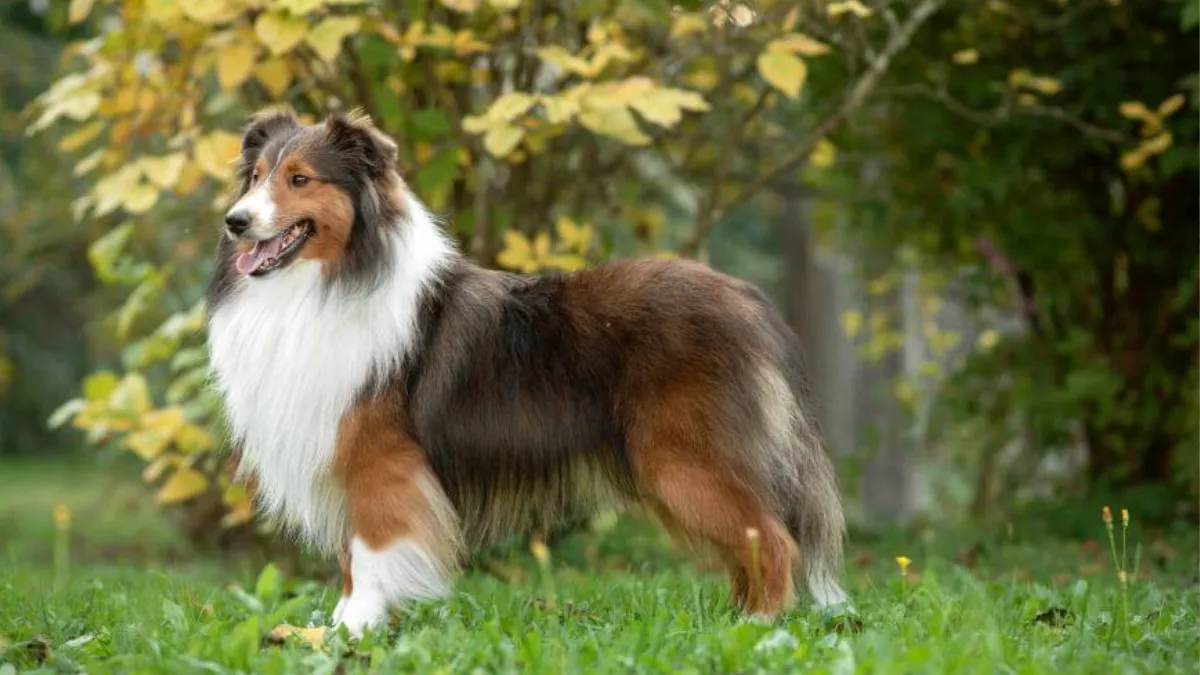
Breed Comparisons
Sheltie vs. Other Herding Breeds
Shelties, also known as Shetland Sheepdogs, are a herding breed that originated in the Shetland Islands of Scotland. They are often compared to other herding breeds such as the Collie, Rough Collie, and Border Collie.
In terms of size, Shelties are smaller than the Collie and Rough Collie, but larger than the Border Collie. Shelties have a more moderate energy level compared to the high energy levels of the Border Collie. They are also known for their intelligence and trainability, which is similar to the Border Collie.
When it comes to temperament, Shelties are known for their loyalty, affectionate nature, and eagerness to please their owners. Collies and Rough Collies share similar traits, but Border Collies can be more reserved and independent.
Sheltie vs. Small Dog Breeds
While Shelties are a herding breed, they are often compared to small dog breeds such as the Pomeranian and King Charles Spaniel due to their size. However, Shelties have a much higher energy level and require more exercise than these small breeds.
Shelties are also known for their intelligence and trainability, which is similar to the Pomeranian. However, Shelties have a more moderate temperament compared to the Pomeranian, which can be more vocal and prone to anxiety.
In conclusion, while shelters share some similarities with other herding breeds and small dog breeds, they have their unique traits and characteristics. Shelties are a great choice for those who are looking for a loyal, affectionate, and trainable companion with moderate energy levels.
Myths and Misconceptions
Common Stereotypes
There are many myths and misconceptions surrounding Shelties, also known as Shetland Sheepdogs. Some people believe that they are simply smaller versions of the Rough Collie, while others think that they are aggressive and drool excessively. In this section, we will explore some of the most common stereotypes associated with Shelties and debunk them.
Shelties are Aggressive
One of the most common stereotypes about shelters is that they are aggressive dogs. However, this is simply not true. Shelties are known for their gentle and affectionate nature. They are excellent family dogs and are great with children. Like any breed of dog, Shelties can become aggressive if they are not socialized properly or if they are mistreated, but this is not a characteristic of the breed itself.
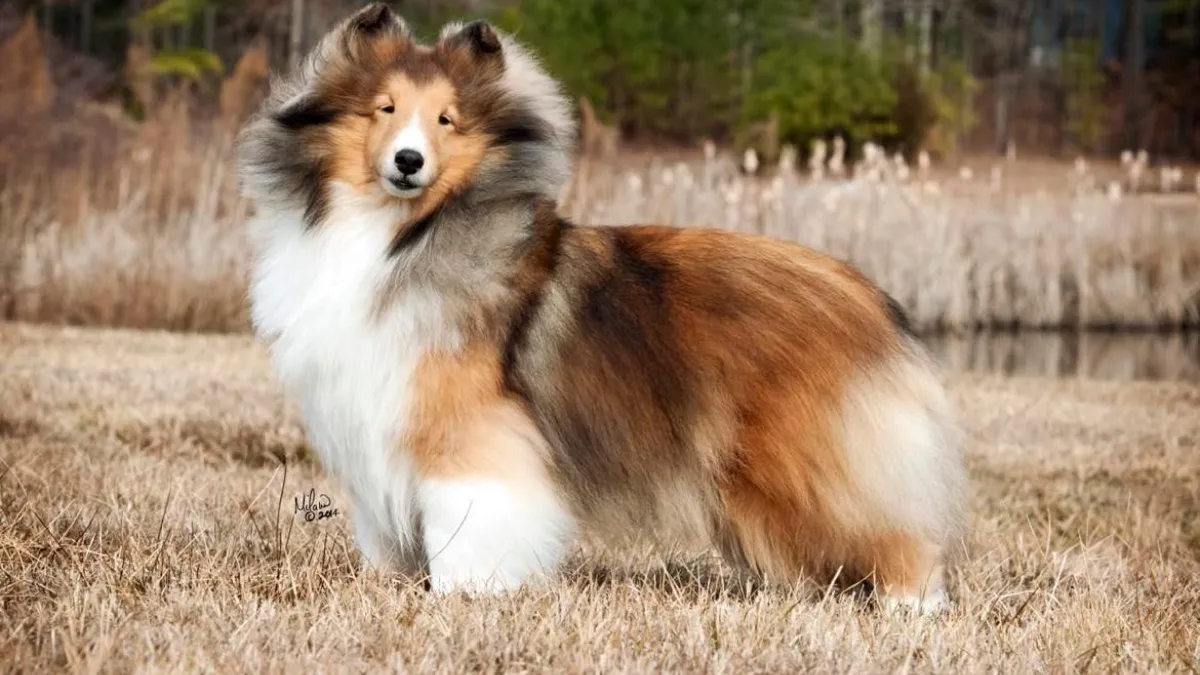
Shelties Drool Excessively
Another misconception about shelters is that they drool excessively. However, this is not true either. Shelties are not known for excessive drooling, and in fact, they are a relatively clean breed of dog. They do shed quite a bit, but this can be managed with regular grooming.
Shelties are Not Intelligent
Some people believe that Shelties are not intelligent dogs. However, this is far from the truth. Shelties are a very intelligent breed and are highly trainable. They excel in obedience training and agility competitions, and they are often used as therapy dogs due to their gentle nature and intelligence.
Shelties are Shy and Timid
Another stereotype about shelters is that they are shy dogs. While it is true that some Shelties can be reserved around strangers, this is not a characteristic of the breed as a whole. Shelties are generally friendly and outgoing dogs, and they love to be around people.
Shelties Bark Excessively
Finally, some people believe that Shelties are excessive barkers. While it is true that Shelties can be vocal dogs, this is not necessarily a bad thing. Shelties are known for their alertness and their tendency to bark when they sense danger or when someone comes to the door. With proper training, Shelties can be taught to bark only when necessary, making them excellent watchdogs without being a nuisance.
In conclusion, there are many myths and misconceptions surrounding shelters. However, by debunking these stereotypes, we can see that they are a wonderful breed of dog that makes great companions for families and individuals alike.
Fun Facts
Breed Popularity and Culture
The Sheltie, or Shetland Sheepdog, is a popular breed of dog that is known for its playfulness and cute appearance. These dogs are quick and obedient, making them an excellent choice as a family pet. They are also rugged and can handle a variety of different environments, which makes them a great choice for those who enjoy outdoor activities.
The Sheltie is a breed that has been around for many years and has become a part of popular culture. They have been featured in movies, television shows, and even books. One of the most famous Shelties is Lassie, who was a beloved character in a television show and a movie. This has helped to increase the popularity of the breed and has made them a favorite among many people.
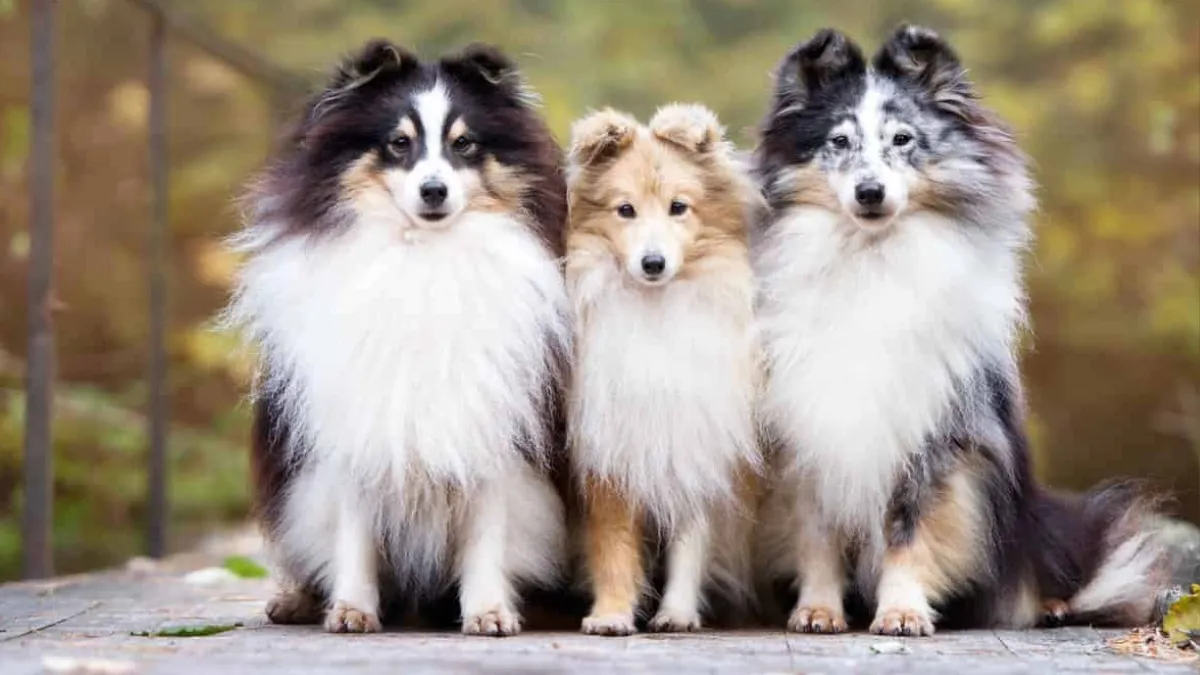
In addition to their popularity in popular culture, the Sheltie is also a popular breed for dog shows. They are known for their obedience and agility, which makes them a great choice for these types of competitions. They are also a popular breed for agility competitions, where they can show off their quickness and agility.
Overall, the Sheltie is a great breed of dog that is loved by many people. They are cute, playful, and obedient, which makes them an excellent choice as a family pet. Whether you are looking for a dog to take on outdoor adventures or one to snuggle up with on the couch, the Sheltie is a great choice.
Conclusion:
In conclusion, a Sheltie is indeed a Shetland Sheepdog. Is a Sheltie a Shetland Sheepdog? Yes, originated from the Shetland Islands.
The Sheltie has a double coat that is long and thick, with a soft undercoat and a rough outer coat. This coat requires regular grooming to keep it healthy and shiny. The breed comes in a variety of colors, including sable, black, and blue merle.
Shelties are highly trainable and excel in obedience and agility competitions. They are also great family pets and get along well with children and other animals. However, they can be reserved with strangers and may require proper socialization.
Overall, the Sheltie is a wonderful breed that is loved by many. Its intelligence, loyalty, and affectionate nature make it a great companion for families and individuals alike.




